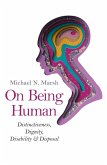In "Mental Evolution in Man: Origin of Human Faculty," George John Romanes embarks on an ambitious exploration of the cognitive development and mental faculties that distinguish humanity from other species. Through a synthesis of evolutionary theory and philosophical inquiry, Romanes meticulously examines the origins of human intellect, positing that mental faculties have evolved through natural selection. His literary style is characterized by a blend of empirical observation and speculative reasoning, reflecting the scientific zeitgeist of the late 19th century, a time when the implications of Darwinian thought were reshaping cultural and intellectual landscapes. George John Romanes was not only a prominent evolutionary biologist but also a close associate of Charles Darwin. His academic background and personal correspondence with Darwin informed his views on evolution, particularly the evolution of mental capabilities. Struggling with the ramifications of evolutionary theory on human nature and morality, Romanes sought to reconcile scientific findings with philosophical inquiries about the human condition, leading to the insights presented in this pivotal work. "Mental Evolution in Man" is a thought-provoking text that challenges readers to consider the implications of evolutionary psychology and ethology on our understanding of humanity. Recommended for anyone interested in the intersections of science, philosophy, and human development, Romanes'Äô work remains a crucial contribution to the discourse on what it means to be human.
Dieser Download kann aus rechtlichen Gründen nur mit Rechnungsadresse in A, B, BG, CY, CZ, D, DK, EW, E, FIN, F, GR, H, IRL, I, LT, L, LR, M, NL, PL, P, R, S, SLO, SK ausgeliefert werden.









